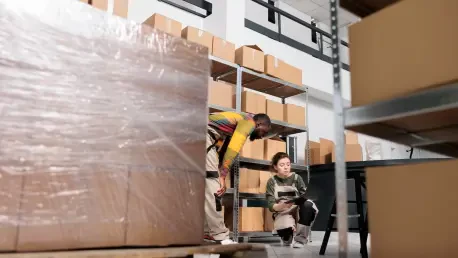The landscape of packaging regulations across Europe is undergoing a profound transformation, compelling businesses to reassess their packaging strategies. The European Union’s Packaging and Packaging Waste Regulation (PPWR) and Extended Producer Responsibility (EPR) frameworks are at the forefront of these changes, representing rigorous new standards that emphasize recyclability, reusability, and producer accountability. This shift is driving profound industry-wide implications and prompting companies to innovate and adapt to maintain their market position. Understanding these regulations is crucial for effectively navigating the evolving regulatory environment.
The Scope of PPWR and Its Implications
Stricter Recyclability Standards
Within the scope of PPWR, companies face the challenge of meeting new binding targets for packaging reuse and recyclability. These targets require businesses to invest in developing packaging solutions that meet both functional requirements and sustainability objectives. The regulation’s intent is to significantly reduce the environmental footprint by moving away from single-use materials to ones that can be reused or easily recycled in existing systems. Consequently, this requires businesses to scrutinize all aspects of their packaging design, production processes, and materials used. Packaging that fails to meet these criteria could lead businesses to incur penalties or lose competitiveness in the EU market.
Businesses must now consider long-term strategic changes that extend beyond mere compliance. This involves reimagining packaging design to align with sustainable practices and developing materials that fulfill both recyclability and reusability mandates. A shift from single-use plastics and non-recyclable materials to innovative and eco-friendly solutions stands as an imperative. Simultaneously, the regulation offers an opportunity to enhance brand image by demonstrating commitment to environmental sustainability, potentially influencing consumer choice and fostering brand loyalty.
Embracing Extended Producer Responsibility (EPR)
EPR shifts the responsibility for packaging waste squarely onto producers, requiring them to manage the entire lifecycle of their product packaging. This entails financial responsibility for collection, recycling, and disposal, instigating further examination of packaging materials. The approach aims to incentivize more sustainable design choices and establish a circular economy where waste is minimized. Through this framework, producers are encouraged to consider the end-of-life phase of their packaging solutions during the design phase, thus promoting a decrease in reliance on disposable materials.
As the EPR framework takes effect, the implications for cost, resources, and operational strategies are profound. Companies must now invest in efficient waste management practices and develop partnerships that can streamline the recycling and disposal processes. The cost implications are significant, particularly for businesses heavily reliant on non-recyclable materials. However, the onus on environmental responsibility can drive innovation and operational efficiencies, ultimately transforming compliance challenges into competitive advantages.
Strategic Adaptation and Compliance
Turning Compliance into a Competitive Edge
For companies to remain competitive, adapting swiftly to these regulatory demands is crucial. The transition to sustainable packaging must be incorporated into every facet of the supply chain to ensure compliance while minimizing costs. Businesses are encouraged to leverage innovative solutions, like Tosca’s reusable packaging systems, which align with PPWR mandates, enhance hygiene standards, and decrease operational expenses. These advancements not only facilitate compliance but also provide a tangible reduction in waste. By embracing these solutions, businesses can turn compliance requirements into a definitive competitive advantage.
Expert guidance and resources, such as Tosca’s “Navigating the Future: A Guide to EU Packaging Related Regulations,” help businesses understand the specifics of these regulations and how to effectively adapt. These materials highlight sustainability’s importance as a core business practice, influencing everything from product design to logistics. By considering these aspects, companies can better position themselves within their industries and contribute to global sustainability initiatives. Integrating eco-friendly solutions is proving indispensable for companies aiming to maintain a strong competitive presence in their respective markets.
Leveraging Resources for Long-Term Success
Programs that facilitate understanding of evolving regulations are invaluable assets for companies aiming to thrive under new EU mandates. Expert-led webinars, like those provided by Tosca, are essential in fostering knowledge and empowering companies to harness regulatory changes for growth. These sessions offer insights into the latest regulatory updates, clarify compliance routes, and showcase best practices in sustainable packaging. Companies can employ these learnings to innovate their packaging solutions, streamline their operations, and reduce environmental impact.
Such forums not only disseminate crucial information but also create communities of practice where businesses can share experiences and strategies. By engaging in these discussions, companies can stay ahead of regulatory changes and position themselves as leaders in sustainability. Ultimately, these ongoing knowledge exchanges equip businesses with the tools necessary to navigate regulatory complexities, capitalize on emerging opportunities, and achieve long-term success in a rapidly changing global marketplace.
Paving the Path Forward
The landscape of packaging regulations in Europe is undergoing a significant transformation, prompting businesses to rethink their packaging strategies. At the forefront of this shift are the European Union’s Packaging and Packaging Waste Regulation (PPWR) and Extended Producer Responsibility (EPR) frameworks. These initiatives set rigorous new standards focused on recyclability, reusability, and holding producers accountable for their packaging waste. As a result, industries across the continent are facing major implications, requiring companies to innovate and adapt to sustain their competitive market position. Understanding these regulations is vital for companies to successfully navigate the changing regulatory landscape. The impact of these policies extends beyond compliance; they necessitate a proactive approach to packaging design, production, and waste management. Businesses must embrace these regulations as an opportunity to develop sustainable solutions, ensuring they are not only meeting legal requirements but also contributing to a greener future.









